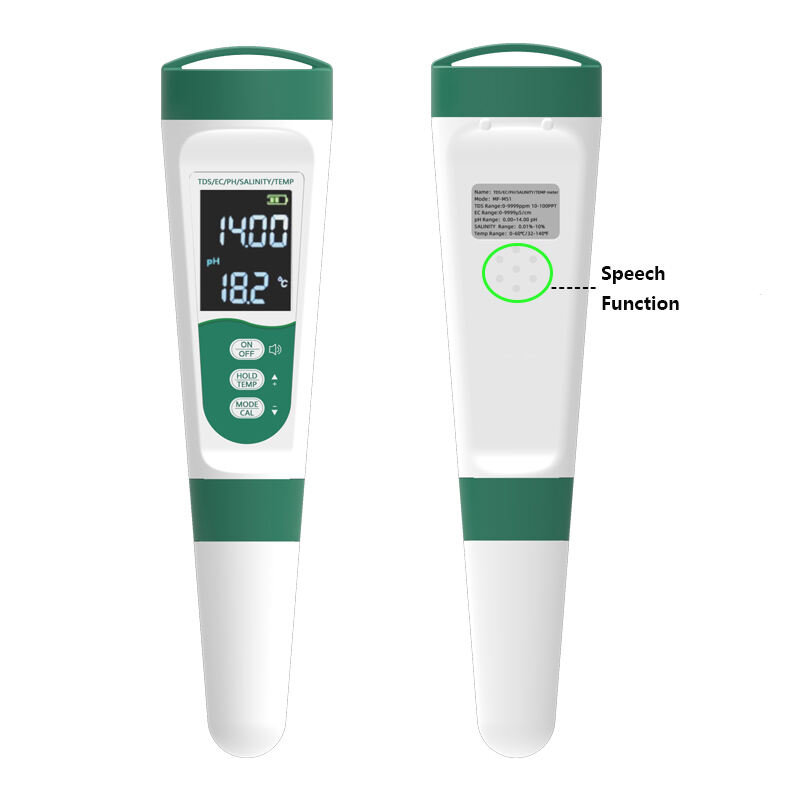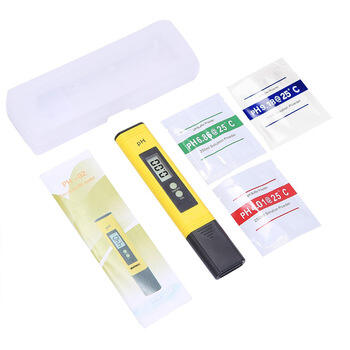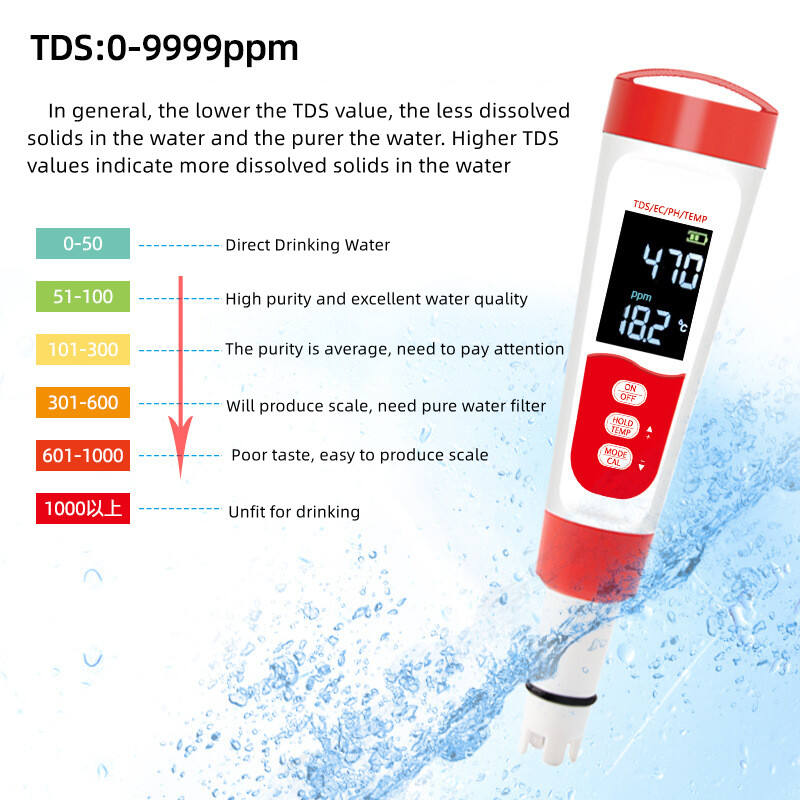টিডিএস মিটার কনডাক্টিভিটি
একটি TDS মিটার কনডাকটিভিটি ডিভাইস হল একটি জটিল পরিমাপ যন্ত্র, যা তরলের মোট দিশলব্ধ বস্তু (TDS) নির্ধারণ করতে এর বৈদ্যুতিক কনডাকটিভিটি পরিমাপ করে। এই গুরুত্বপূর্ণ যন্ত্রটি দিশলব্ধ আয়নের ঘনত্বের সঠিক পাঠ্য প্রদান করে, যা বিভিন্ন অ্যাপ্লিকেশনের জন্য অমূল্য। মিটারটি দুটি ইলেক্ট্রোডের মধ্যে ভোল্টেজ প্রয়োগ করে এবং বর্তি প্রবাহ পরিমাপ করে, যা সরাসরি দিশলব্ধ বস্তুর ঘনত্বের সাথে সংশ্লিষ্ট। আধুনিক TDS মিটারগুলি ডিজিটাল ডিসপ্লে, তাপমাত্রা সহনশীলতা মেকানিজম এবং ক্যালিব্রেশন ক্ষমতা সহ নির্দিষ্ট পরিমাপ নিশ্চিত করতে উদ্দেশ্য করে। এই প্রযুক্তি উন্নত মাইক্রোপ্রসেসর সংযুক্ত করেছে যা তাৎক্ষণিকভাবে কনডাকটিভিটি পাঠ্যকে TDS মানে রূপান্তর করতে পারে, যা সাধারণত মিলিয়নের প্রতি অংশ (ppm) বা লিটারের প্রতি মিলিগ্রাম (mg/L) এ প্রকাশ করা হয়। এই যন্ত্রগুলি জলপ্রমাণ কেসিং, দীর্ঘ জীবন বিশিষ্ট ব্যাটারি এবং অটো-রেঞ্জিং ক্ষমতা সহ ডিজাইন করা হয়েছে যা স্বয়ংক্রিয়ভাবে উপযুক্ত পরিমাপ স্কেলে সমন্বিত হয়। এগুলি পানির গুণগত পরীক্ষা, হাইড্রোপনিক্স, জলজ প্রাণী পালন, সুইমিং পুল রক্ষণাবেক্ষণ এবং শিল্প প্রক্রিয়ায় ব্যবহৃত হয়, যেখানে পানির শোধতা পর্যবেক্ষণ করা গুরুত্বপূর্ণ। মিটারগুলি বিভিন্ন দিশলব্ধ বস্তু, যেমন লবণ, খনিজ, ধাতু এবং অন্যান্য অগ্রোগ্রাহ্য যৌগ নির্ধারণ করতে পারে, যা এগুলিকে উভয় পেশাদার এবং গৃহস্থালী অ্যাপ্লিকেশনের জন্য অন্যতম যন্ত্র করে তোলে।


